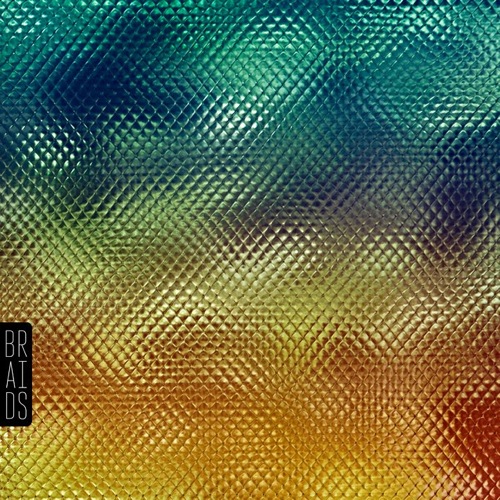 Braids
BraidsNative Speaker
Score: 34
Calgary experimental group Braids, formed four years ago when its members were in high school, released their second album, Native Speaker, on the 18th. The band’s first album on a label, Native Speaker is a deeply colorful album that, certain successes aside, doesn’t quite pull off its experiments as well as Braids might have hoped.
Native Speaker begins with the intriguing beat of “Lemonade,” a heavily synthetic style that would favor waves of sound and slight, meaningful changes. Unfortunately, those waves and changes never come. While “Lemonade” is interesting, it becomes less and less interesting as the track progresses due to a severe lack of any innovation beyond what was already present at the start of the track. And while each track on the album may be marginally unique, they neither stand on their own nor work with one another particularly well. All that comes with the end of the album is a feeling that maybe “Lemonade” was only interesting because it was the first track.
If Braids aimed for minimalism, they certainly took the genre quite literally. Minimalism’s success lies in accenting even the most subtle changes such as an added level of harmony, an instrument dropping out, or the melody evolving - exceedingly carefully - in some manner. If those changes were present on Native Speaker, they certainly weren’t anywhere near readily discerned. To be fair, the band does on occasion seem at least somewhat capable of changing instrumentation, though that ability wanes whenever vocals are present.
Their occasionally dubious union with instrumentals aside, there’s an odd degree of variation in Native Speaker’s vocals. “Lemonade” features solid vocals, with a careful tone that comes off quite well, especially with the layering behind it. After that track, though there are moments where the vocals echo their early success, they tend to level out, blending into forgettable instrumentals to a degree that is genuinely regrettable. From time to time, that fairly banal approach is replaced with a sort of echoing shriek that, unfortunately, is nearly painful in its combination of cacophony and intensity.
Given that the majority of Native Speaker’s vocal style involves blending into the instrumentals, it’s not altogether surprising that the lyrics wouldn’t come through much either. When they do, they range from ill-advised to simply mediocre. Lines like “There are black diamonds in your eyes / And just so you know, your skin is scaling” don’t come off in quite the poetic manner in which they were hopefully meant, and a line like “What do you say to a man who’s got no taste / Who’s really got no potential / Except to procreate so inessential” is more of an uninspired, thesaurus-aided attempt at rhyming than any conceivable sort of success.
As a whole, Native Speaker is unsuccessful, and very few tracks on the album could be considered interesting in their own right. The combination of unmoving, dreamy instrumentals and incredibly unstructured, occasionally indecipherable vocals is, not exactly surprisingly, the culprit behind the album’s failures. With quite a bit of bad, and very little good to work against the rest, Native Speaker is not only unsuccessful, but fairly difficult to enjoy.